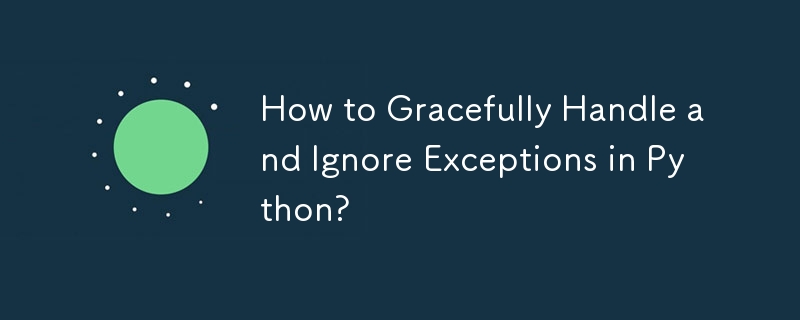

In Python, when a block of code fails to execute due to an exception, the program typically exits or raises an error. However, there may be cases where you only want to gracefully ignore the exception without affecting the program's flow. Understanding the best way to achieve this will ensure your code remains maintainable and robust.
To ignore specific exceptions while still capturing the error, use the try-except block with the appropriate exception type specified. For instance, if you want to ignore an IOError, you would write:
try:
# Code that may raise an IOError
except IOError:
passIf you want to ignore all exceptions, including keyboard interruptions and system exits, use:
try:
# Code that may raise an exception
except Exception:
passNote: This approach catches all exceptions derived from Exception, including KeyboardInterrupt and SystemExit.
While ignoring exceptions can be useful in certain scenarios, it is generally not recommended to suppress all errors without proper handling. Here's why:
The above is the detailed content of How to Gracefully Handle and Ignore Exceptions in Python?. For more information, please follow other related articles on the PHP Chinese website!




